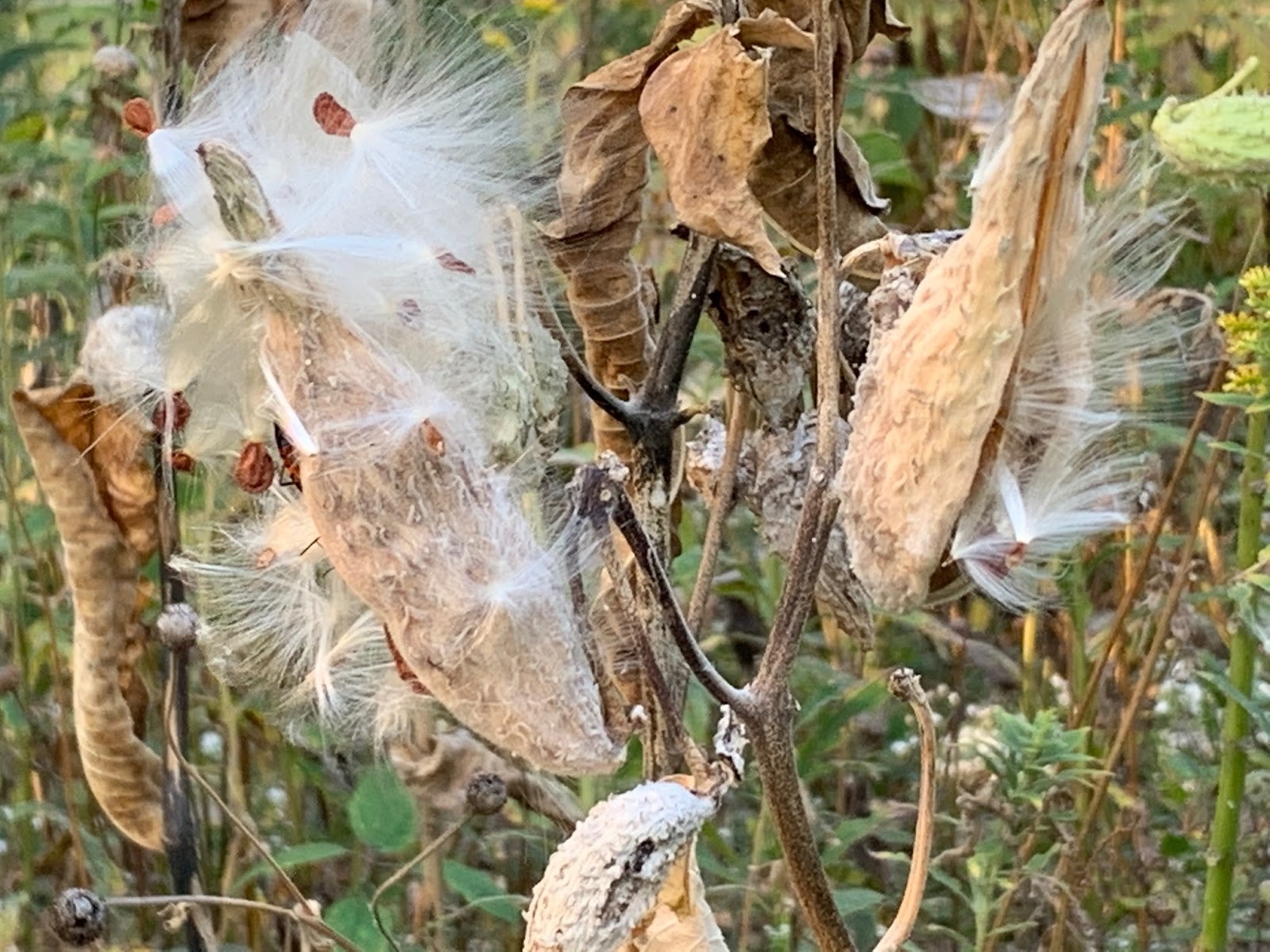Connected While Apart
Such Trust: Seeds on the Move

a familiar fall scene
“Journeys ended, journeys begun, to go where we have never been, to be beyond our past.” (Gregory Norbet)
Dear Mayfield,
In the third chapter of the Gospel of John, we read of the nighttime encounter of Jesus with the Pharisee Nicodemus, also a member of the Sanhedrin, in other words a religious authority of some note. Nicodemus comes with curiosity and with much to lose. This was the text on March 8th, our last Sunday together before the pandemic settled in. The conversation of Jesus and Nicodemus turns on the metaphor of what it means to be born a second time, to experience life with a transforming freshness so significant it resembles a new birth. Part of Jesus’ response to Nicodemus’ confusion about such a birth when one is already grown comes in these words from the eighth verse of chapter three: “The wind blows where it chooses, and you hear the sound of it, but you do not know where it comes from or where it goes. So it is with everyone who is born of the Spirit.” Similarly 12th century St Hildegard of Bingen, a Benedictine Abbess, whose life was so prolific in a host of directions, wrote of herself being like “a feather on the breath of God.” The 50 to 100 seeds with their parachute fluff tightly organized and packed in each common milkweed pod, like the new birth of the gospel of John, and Hildegard’s feather, are carried on the wind without navigational devices. They all surrender to guidance and goodness greater than they are and journey beyond what they have known and where they have been before.
In the ancient Celtic world, there was a practice of pilgrimage called peregrinatio. When they sensed in their hearts that the time was right, a group of monks set out in a coracle, Coracles were small boats without oars or a rudder, composed of animal skins over a wooden frame that was sealed with pitch. In the coracles monks relied not on their navigation skills or any control they could exert. The will of the wind and the current guided them to where they were meant to be. For them that wind and current were visual manifestations of divine loving intention leading them.
Imagine for a moment, in this time of layer upon layer of communal stress and crumbling structures, when the myth of how much we are in control has frayed significantly, imagine the feather, the milkweed seeds, the monks in the coracle, the yearning toward newness that becomes life-changing as birth, imagine all of those images as nudges toward surrendering into trust. That is trust that will lead and hold us. In it will lie the challenge of arriving beyond old boundaries. There’s nothing easy about it. We can’t know the course ahead of time. Wind and current will go where they choose to go, bearing us with them. For milkweed seeds to successfully emerge from dormancy in the next growing season, they have to stratify, endure in winter’s cold for at least a month. That cold like the boat with no oars or rudder or like the feather detached from the power of a wing or like the mysterious power of birth requires the risk of our vulnerability as we trust.
In what do we trust these days? Is it in something small that we might be able to manage if we get scared or in something so vast that we have to be able to embrace uncertainty and unexpected changes along the way? There are questions not only about our capacity to trust but as important questions about where we place our trust. In this webnote I simply remind us of Nicodemus, Hildegard’s feather, milkweed seeds, and the ancient Celtic monks in their coracles. Is the thread of similar trust in their stories, trust embraced or trust struggled with, the trust that we might consider in all that we face right now? It is a trust that might make us tremble, trust in what we can not yet see because that is what birth is always about? We entered this pandemic on the heels of Nicodemus. Now, eight months later, milkweed seeds are riding prairie winds all around us. From Nicodemus to the milkweed seeds, let us hear their questions about trust. Can we sit with them for a while? They don’t have to be quickly answered today. Let us linger and listen for the sake of trust.
Peace, Martha

